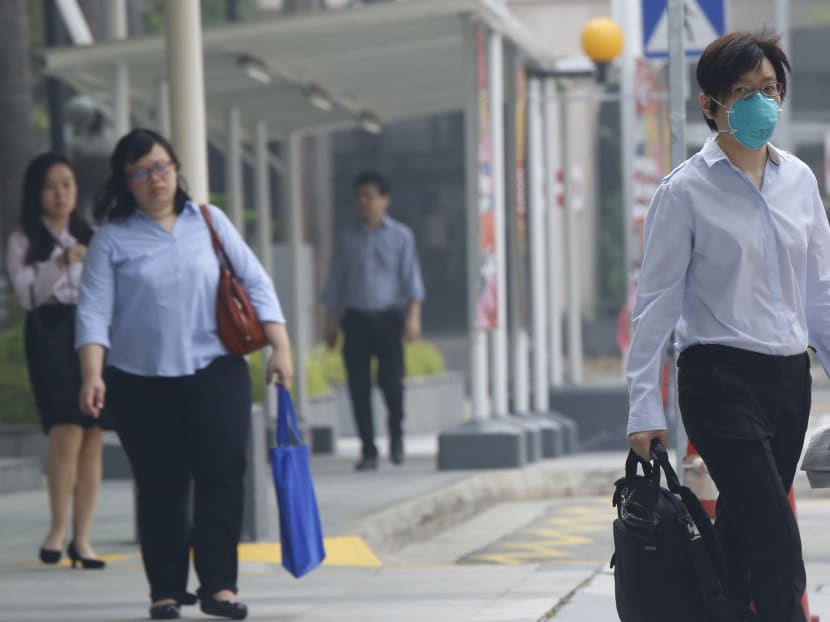Air quality to be in unhealthy range tomorrow: NEA
SINGAPORE — Hazy conditions can be expected tomorrow (Oct 17), with the possibility of a reduction in visibility if denser haze from the surrounding region is blown in, said the National Environment Agency (NEA).
SINGAPORE — Hazy conditions can be expected tomorrow (Oct 17), with the possibility of a reduction in visibility if denser haze from the surrounding region is blown in, said the National Environment Agency (NEA).
In an update today, the NEA said the 24-hour Pollutant Standards Index (PSI) for the next 24 hours is expected to be in the low end of the unhealthy range, as prevailing winds are forecast to blow from the southeast or south. Air quality may also enter the mid-section of the unhealthy range if denser haze is blown in.
As of 6pm today, the 24-hour PSI was at 102-113 while the 3-hour PSI stood at 116.
NEA said that a deterioration in haze and visibility conditions was experienced today due to the prevailing southeasterly winds blowing in haze spreading westward from Kalimantan and is expected to persist for the rest of the day.
A total of seven hotspots were detected in Sumatra today, said the NEA, adding that some haze from Sumatra and Kalimantan was observed to have spread to the sea areas south of Singapore. Yesterday, partial satellite pass led to the detection of 18 hotspots.
Given the air quality forecast for the next 24 hours, the NEA advised that healthy persons should reduce prolonged or strenuous outdoor physical exertion. The elderly, pregnant women and children should minimise prolonged or strenuous outdoor physical exertion, while those with chronic lung or heart disease should avoid prolonged or strenuous outdoor physical exertion. Persons who are not feeling well, especially the elderly and children, and those with chronic heart or lung conditions, should seek medical attention.







